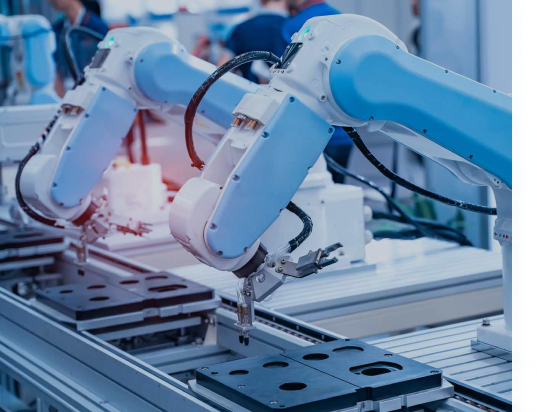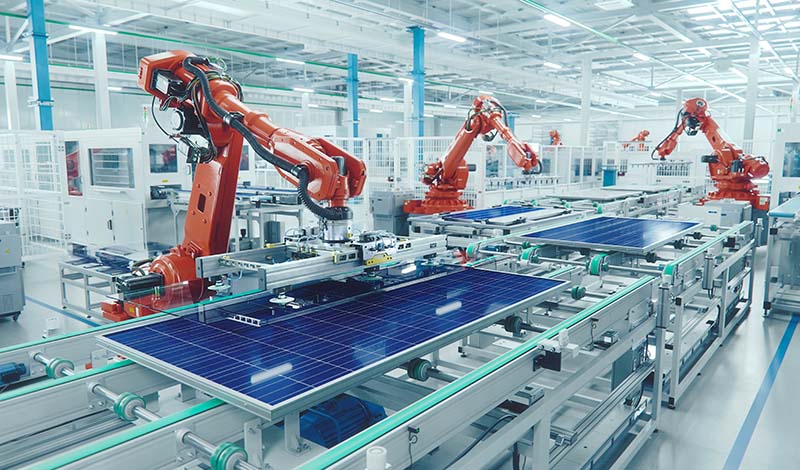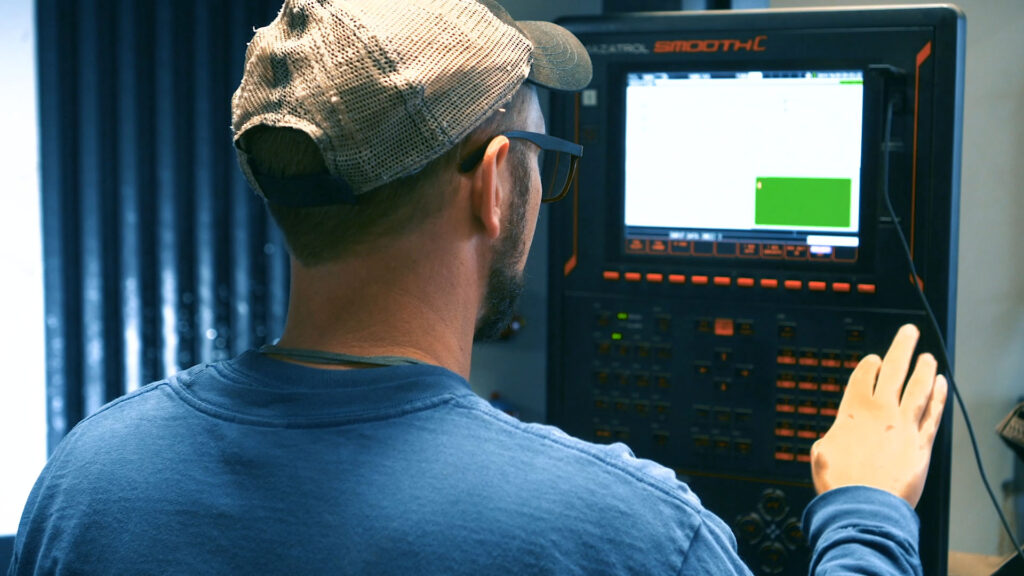
You may already have heard of some of the benefits of robotic process automation, or RPA. You may even be aware of how this has been deployed in the industrial manufacturing sector, particularly regarding order fulfillment and quality control. But what is robotic process automation exactly?
RPA harnesses the benefits of machine learning and artificial intelligence and puts them to work in tasks that would previously have been handled manually by human teams. Rather than a human interacting with a system – for example, a customer service representative logging into a system to retrieve account information – an RPA “robot” can be deployed to do this instead. In this sense, RPA is about automating manual, rule-based tasks.
RPA, or robotic process automation, offers a versatile solution for automating manual processes in business operations. When it comes to industrial manufacturing, there are many potential applications for RPA. For example, RPA can be used to: Automate the handling of incoming orders, schedule and track production tasks, monitor quality control, and generate reports on production metrics.
Implementing RPA in your industrial manufacturing operation can help to improve efficiency, quality, and accuracy while freeing up your human team members to focus on more strategic tasks. RPA can automate manual processes and workflows allowing your employees to focus on higher-value tasks while reducing errors and improving compliance.
In addition, RPA can help to improve communication and collaboration between humans and machines by providing real-time data and insights into production operations. Ultimately, RPA can help you to optimize your industrial manufacturing operation and realize significant cost savings and operational efficiencies.

Robotic process automation is different from other automation technologies and instead refers to a specific form of automation. While other technologies can be applied to different phases and steps within the broader process, robotic process automation is restricted to the front end.
Essentially, RPA works as a bot, interacting with systems via the user interface, just in the same way a human would. So, when RPA is utilized to automate processes, it does so by taking over the tasks that humans would typically perform.
This means a piece of RPA software is accessing the UI and inputting data in this way. It is not bypassing the UI and connecting to databases or other systems in the background, as some other automation technologies do. This makes RPA a relatively easy form of automation to deploy and implement, significantly boosting accuracy, precision, speed, and reliability in the process.
In today’s fast-paced world, industrial manufacturers are always looking for ways to improve efficiency and productivity. One way to do this is through the use of robotic process automation (RPA). RPA is a type of software that can be used to automate repetitive tasks across multiple systems. This can include tasks such as data entry, report generation, and order processing.
By using this automation software for these tasks, manufacturers can free up employee time for more strategic work. In addition, RPA can help to improve accuracy and consistency by eliminating human error. When used in conjunction with other forms of automation, RPA can help to create a fully automated manufacturing process. As a result, industrial manufacturers can experience significant benefits in terms of efficiency, productivity, and cost savings.
1
RPA can help to reduce labor costs by automating tasks that are typically performed by human employees. In addition, RPA can help to reduce the cost of errors and rework by increasing accuracy and consistency. The combination of these cost savings can lead to significant reductions in manufacturing costs.
2
RPA can help to improve manufacturing efficiency by automating repetitive tasks across multiple systems. This can free up employee time for more strategic work. In addition, RPA can help to improve communication and collaboration by providing employees with instant access to accurate data. This can lead to faster decision-making and reduced downtime.
3
Human personnel can be highly trained and excellent at what they do, but they are still human. When it comes to data entry and other tasks, this humanity leads to errors and mistakes – two things that must be minimized in the manufacturing sector. RPA neatly sidesteps this, eliminating human intervention and supporting total accuracy and precision across every task.
4
When you deploy RPA solutions to handle laborious and time-consuming tasks, you are freeing up other resources to focus on other areas of your business. What is your most important resource? Generally, this is your personnel – your human teams will find themselves available to dedicate more time and attention to tasks more worthy of their talents.
5
Increasingly, businesses are moving towards digitization – the adoption of digital processes and practices that will transform operations forever. Digital transformation is the pathway that takes businesses to this point, facilitating a profound change mindset and replacing out-of-date processes with new, future-focused ones.
RPA is not quite the same as digital transformation, but it is an important step along the way. By adopting machine learning and artificial intelligence in this way, organizations are readying themselves for the future.
6
If your competition has not yet adopted RPA, then you have a clear opportunity to get ahead. By automating time-consuming and repetitive tasks, you can improve efficiency and productivity, giving you a competitive edge. In addition, RPA can help to improve accuracy and consistency, providing you with a quality advantage. RPA will help you achieve this by ironing out any inefficiencies or issues and helping you move ahead of your competitors.
RPA can be used in a variety of ways to improve efficiency and effectiveness within industrial manufacturing. For example, RPA can be used to streamline onboarding processes for new employees.
By automating the onboarding process, new employees can be productive more quickly, and the company can save on onboarding costs. In addition, RPA can be used to automate repetitive business processes such as data entry or invoice processing. This can free up employees’ time to focus on more value-added activities, and it can reduce the chances of errors due to human error.
RPA can also be used to monitor production line activity in real-time and identify areas of improvement. By collecting and analyzing data on production line activity, businesses can make changes to optimize their operations. As these examples illustrate, RPA can bring significant benefits to businesses in the industrial manufacturing sector.
To learn more about how RPA can revolutionize operations for the better, let’s take a look at some examples of RPA in action within industrial manufacturing.
1
In the industrial manufacturing sector, orders can come in from a variety of sources such as online stores, phone calls, or emails. Keeping track of all of these orders and fulfilling them in a timely manner can be a challenge for businesses. RPA can be used to automate the order fulfillment process by collecting data on incoming orders and sending them to the appropriate fulfillment center. This can help to improve the accuracy of orders and reduce the time it takes to fulfill them.
2
Purchase orders are a crucial part of the industrial manufacturing supply chain. RPA can be used to automate the purchase order process by collecting data on incoming purchase orders and sending them to the appropriate supplier. This can help to improve the accuracy of purchase orders and reduce the time it takes to process them.
3
Inventory management, analysis, and decision-making can be time-consuming tasks for businesses in the industrial manufacturing sector. RPA can be used to automate the inventory management process by collecting data on inventory levels and sending it to the appropriate decision-makers. This can help to improve the accuracy of inventory reports and reduce the time it takes to manage inventory.
4
The industrial manufacturing sector is subject to a variety of regulations. RPA can be used to automate the compliance process by collecting data on regulatory requirements and sending it to the appropriate decision-makers. This can help to ensure that businesses are in compliance with all relevant regulations. Plus, it can free up employees’ time to focus on other tasks.
5
Industrial manufacturing businesses often need to communicate with their customers. RPA can be used to automate the customer support process by collecting data on customer inquiries and sending it to the appropriate customer service representative. This can help to improve the accuracy of customer responses and reduce the time it takes to resolve customer issues.

Here at Process Equipment & Controls, we work with clients across a range of industries to implement robotic process automation into their operational models. To achieve this, we utilize a five-point plan of action, bringing together planning, processes, management, teamwork, expertise, and integrity.
In other words, we work closely with you, planning and strategizing the right way to meet your unique goals and expectations. From here, we work diligently to put this strategy into action. We do this by adopting effective project management procedures and a collaborative approach as we help your business get the very best from RPA.
All of this is backed up with in-depth knowledge and a commitment to honesty and openness every step of the way. Robotic process automation is going to be critical for industrial manufacturing organizations in the coming years. We help to make sure these organizations are ready for the next steps.
RPA, or Robotic Process Automation, is a powerful technology that can bring many benefits to businesses of all sizes. RPA tools can automate repetitive and manual tasks, freeing up employees to focus on more strategic work. RPA bots can also help to improve efficiency and accuracy by working 24/7 and providing real-time feedback.
In addition, RPA technology can be used to gather data and insights from multiple sources, allowing businesses to make more informed decisions. If you’re interested in learning more about how RPA can benefit your business, reach out to our team and schedule a consultation today.